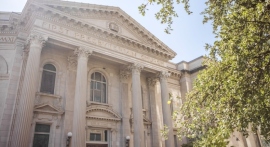
Unlicensed chaplains could replace certified school counselors in public schools under a bill that has been presented in the Texas state legislature, which is a worrying development. Diverse stakeholders, like Cantor Sheri Allen, who has been aggressively advocating against the idea, have expressed grave reservations about this proposal.
Cantor Sheri Allen took immediate action upon learning about the proposed legislation by sending daily emails to her state representatives and sharing news stories and opinion pieces. Her main reason is to draw attention to the possible threats this might bring to the students.
Texas State Legislature Presents Bill Allowing Unlicensed Chaplains as School Counselor Replacements
The bill has sparked concerns about the qualifications and expertise of unlicensed chaplains who would be responsible for providing guidance and support to students. The provision in the bill explicitly states that these chaplains are not required to be certified by the State Board for Educator Certification, raising apprehension about their abilities. Cantor Allen expressed her viewpoint in an article shared by the Times of Israel, stating, "While individuals have the right to believe what they want, imposing those beliefs on others is not acceptable. Religion should remain within faith communities, not public schools."
Despite Cantor Allen's efforts to communicate with her state representatives, the bill passed with a vote of 80 to 64. Now, Governor Gregg Abbott holds the power to either approve or veto this contentious legislation before it can become law. The governor has until mid-June to make this crucial decision.
Controversial Bill Raises Concerns about Church-State Separation and Christian Nationalism
Cantor Sheri Allen, the co-founder of Congregation Makom Shelanu, perceives the recent adoption of the bill allowing unlicensed chaplains in public schools as yet another violation of the separation between church and state. An article shared by Bharat Times reveals that an increasing number of individuals, including pastors, advocates of religious freedom, and educators, share concerns about the rise of Christian nationalism in the country.
The adoption of this legislation has triggered worries about government personnel potentially imposing their religious beliefs on students. Accordung to aRachel Ledger, president and CEO of American United for Separation of Church and State, an organization dedicated to promoting religious liberty, argues that such bills "encourage public officials to use state power to impose their religion on all children." Ledger also asserts that these actions reflect Christian nationalism by prioritizing Christian values within the government, which marginalizes students and others with different beliefs.
Another debate surrounding the constitution has emerged due to the approval of Oklahoma's first potential Christian charter school in the United States. As reported by Christianity Daily, religious instruction will be incorporated into the online curriculum of St. Isidore of Seville Catholic Virtual School, operated by the Catholic Diocese of Tulsa and the Catholic Archdiocese of Oklahoma City. While Christian conservatives have praised this decision, it has raised questions about using taxpayer funds for religious organizations. The decision made by the Oklahoma Statewide Virtual Charter School Board, under Republican control, may lead to a legal dispute concerning the separation of church and state in the education system. Critics argue that this decision violates state law and erodes the boundary between religion and the state.
Related Article: Texas Legislators Greenlight School Chaplains in Response to Escalating Mental Health Crisis


















